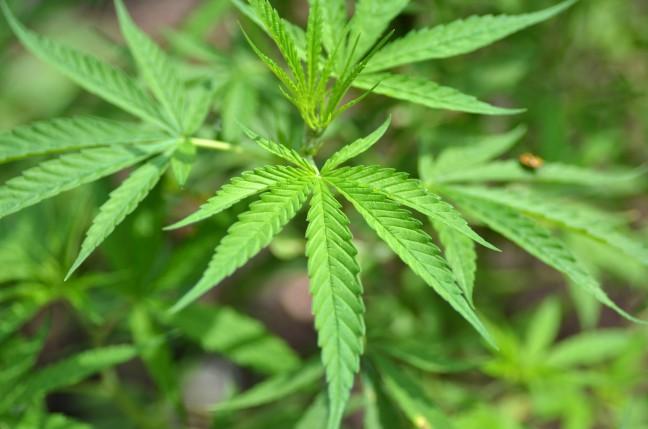A new bipartisan bill that would legalize the use of medical marijuana in the state of Wisconsin is proposed to have medical and monetary benefits if passed, supporters said.
The bill, by Sen. Jon Erpenbach, D-Middleton, Rep. Chris Taylor, D-Madison and Sen. Patrick Testin, R-Stevens Point, would make Wisconsin the 34th state to make the drug legal for medicinal purposes.
The bill grants patients with conditions such as human immunodeficiency virus/acquired immunodeficiency syndrome, post traumatic stress disorder, Alzheimer’s disease, cancer and other medical conditions the ability to apply for a registry identification card.
With assistance from a physician, registry identification cards would be individually verified by the Department of Health Services. Those with proper identification would be able to purchase and use Food and Drug Administration approved medical marijuana medications.
Additionally, the bill would establish grounds for legally producing the drug in the state. Potential dispensaries and growers would require a license from the Department of Agriculture, Trade and Consumer Production, as well as bring in the DATCP $5,000 each, in the form of an annual operation fee.
Gary Storck is a lifelong advocate and user of marijuana for medicinal purposes. Born with Noonan syndrome, Storck developed glaucoma at an early stage of his life and began to lose his vision. Storck finally found relief in 1972 when the drug restored his eye pressure to normal levels.
“Breaking the law helped save my life,” Storck said. “If I had waited 47 years for legislators to legalize medical marijuana, I would have waited through five open heart surgeries, the pain of arthritis, the loss of my sight due to glaucoma and cancer treatment. I would not have survived.”
Storck, however, questions the success this bill will see. Storck said he has become accustomed to being “let down” by the legislature.
Storck said the origin of this bill comes from a similar bill formulated in 2008, which he helped write. The 2008 bill died in committee and failed to receive a public hearing.
In 2017, the Wisconsin Senate passed a bill allowing individuals to possess and sell cannabidiol. Cannabidiol, often referred to as CBD, is the non-psychoactive compound in marijuana that can be used to treat medical conditions such as epilepsy.
According to the Journal Sentinel, Governor Tony Evers announced plans to include the legalization of medical marijuana in the 2020 state budget. This coincided with a majority vote for legalization within the 16 counties where the question was placed on the ballot.
While decriminalization has yet to take effect, the use of the drug for medicinal purposes has become accepted even by law enforcement.
The Madison Police Department former chief of police has gone on record that he supports the legalization of medical marijuana, MPD Public Information Officer Joel DeSpain said.
DeSpain also said Madison police are already unlikely to arrest individuals for small possessions of the drug.
Racial divides, however, pervade the issue. In Wisconsin, black people are four times as likely as their white counterparts to be arrested for marijuana possession, according to Wisconsin Watch.
According to Wisconsin Watch, nearly 15 thousand adults in Wisconsin were arrested in 2018 for marijuana possession. This is a 3% increase from 2017.
Prison admissions in Wisconsin for marijuana also were higher in 2016 for black people than for their white counterparts, according to Wisconsin Watch. The site said some experts attributed this to the policing practices in low-income neighborhoods that typically have more residents of color.
Smoke Signals: Wisconsin referendum reveals voters want legal weed, but what are the risks?
Kenneth Streit, UW clinical professor of law, said incarceration rates for THC are not as prevalent as it may seem.
“My most recent look at [Department of Corrections] data is that less than 1% of the 23,500 inmates are in prison primarily for drug possession and fewer than one third of those are in for THC,” Streit said.“My experience as Clinical Professor reviewing 1,500 plus files of offenders is that 100% of those in for ‘possession’ had plea bargains which began as multiple counts of drug dealing.”
Beyond the scope of arrests, the legalization of marijuana has prompted economic study as well.
Arcview Group, a cannabis market research firm, reported that legal cannabis revenue is projected to nearly triple from current levels into a $23 billion industry.
A cost-benefit analysis by the UW La Follette School of Public Affairs projected the positive effects of the bill on Wisconsin.
According to the analysis, if Wisconsin were to legalize cannabis for medical uses, there would be a net $1.1 billion positive effect, bringing in additional fees and health benefits while potentially reducing opioid overdoses, addiction and traffic fatalities over five years.
“Legalization is about compassion toward suffering people,” says Storck. “Patients already use cannabis in the state of Wisconsin, and they will continue to use it if this bill is not passed. Legislators are keeping medicine out of the hands of suffering people, keeping marijuana on the black market and sending business elsewhere.”













